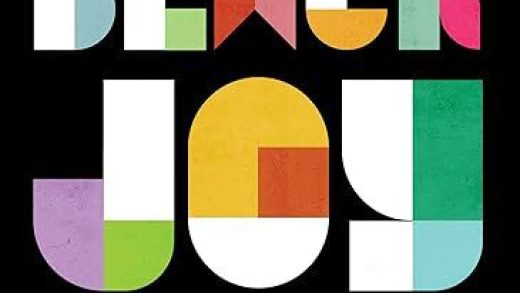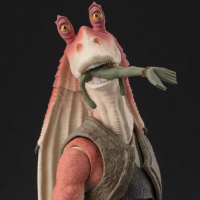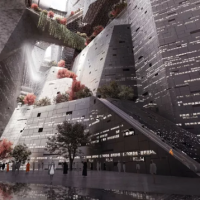Much like writing itself, the planning of a literary festival may start with a question. At least this is what the Festival of Literary Diversity (FOLD) founder, Jael Richardson, says about her conference each year. Before planning truly begins, Richardson and the organizers of FOLD ask themselves: Who have we not seen or heard from? She says, “That’s where we start our programming.”
This question—what viewpoints and voices are absent from the larger celebrations of literature?—is inspiring a new batch of literary festivals, focused on increasing and highlighting inclusion as well as expanding the conversation on how to see change. Alongside FOLD, this spring will see the inaugural Antiracist Book Festival, the first of its kind in the United States, founded by National Book Award winner Dr. Ibram Kendi and managing director Dr. Christine Platt. The Antiracist Research & Policy Center (ARPC) Kendi heads was launched in 2017 and earlier this year Kendi co-edited an Antiracism and America series for The Guardian. During this time a book festival was a kernel of an idea that grew into a reality. Per Kendi, this gathering was meant to be “a celebratory and thought-provoking and inspiring space for writers and readers of books on racism, books that are striving for racial justice.”
With this dedicated focus on both ends, the organizers of the Antiracist Book Festival—taking place in Washington, D.C. on April 27th—and FOLD—happening on May 2nd in the city of Brampton, Ontario, Canada—have created their own paths. These events establish an imperative space, not only to showcase books by marginalized people, but to center marginalized people in the literary discourse.
Organizers ask themselves, ‘Who have we not seen or heard from?’
This year marks the fourth annual FOLD, which Richardson initially called a “social experiment.” Having already established herself as an author and an advocate for diversity and inclusion in Canada’s literary scene, she created an event that has grown and been absorbed by the larger community because it allows them to see the range of underrepresented authors and illustrators within Canada and beyond. Providing a stage to creators publishing representative and respectful stories isn’t simply a goal, it is a clearly written mission on the FOLD’s website. FOLD doesn’t solely feature underrepresented artists, the day-long event highlights artists whose work “inspires acceptance, empathy, and equality.” In other words, it’s not enough to simply have the representation; inclusion needs to be evident in the ways characters and spaces are depicted.
The Antiracist Book Festival’s mission is also clear in its programming, which is split into author panels and editorial workshops. With discussions on topics like using lyricism to explore time, religion and sexuality and race, democracy in public record, writing a book proposal, and Race 101, the focus on and around racial justice is never lost. How racism is discussed, dissected, and described is not separate from the craft of writing. As Kendi says, “what makes this group of authors unique, and uniquely antiracist, is their books chart paths forward to healing ourselves and our country of racism.”
How racism is discussed, dissected, and described is not separate from the craft of writing.
Aspects and participants of the Antiracist Book Festival were introduced through the Antiracist Research & Policy Center’s FD200, which honored 200 Americans whom the Center felt best represented the legacy of a leader in the abolitionist movement, Frederick Douglass. This celebration took place in Washington, D.C. earlier this year, and several honorees, like Jason Reynolds, Carol Anderson, and Jacqueline Woodson, will be in attendance at this year’s festival.
Kendi emphasized the importance of the community built as part of this festival and what the festival offers attendees in scope and dialogue as well as inspiration. “We are bringing together some of the most important authors of our time, who are literally writing for racial justice, for a world where the bodies of people can be as free and lively as their pens.”
For Richardson the breadth of community in not only the attendees but the speakers and organizers is what makes FOLD unique because it shows what people have been missing due to lack of awareness or even lack of support by publishers and other entities. An issue that arises with festivals and book-related events, Richardson says, is complicity. Exclusion occurs because many groups were never considered in the first place and so the same narrow ways of thinking and planning continue. Richardson mentioned one white attendant who was excited about the new authors she was introduced to thanks to FOLD, but also upset: as a regular patron of bookstores and libraries, she didn’t understand why she hadn’t been aware of the authors she’d just encountered at the festival in Brampton. Richardson hopes attendees will carry that new awareness with them after the festival. “I want people to feel a difference at the FOLD that makes them long for more diversity in the reading they do beyond FOLD,” she says. And she’s leading by example, expanding planning to be more inclusive of disabled guests in order to broaden access to FOLD.
Who isn’t represented here? What isn’t being spoken about but should? These are the questions that FOLD and the Antiracist Book Festival seek to answer through literature and fellowship. These should be the questions all literary festivals should be asking themselves every year.
Tickets can be purchased for the Antiracist Book Festival at American University’s Washington College of Law on eventbrite. You can register to attend the upcoming FOLD in Brampton via their website.
The post New Literary Festivals Lead the Way by Celebrating Diversity appeared first on Electric Literature.
Source : New Literary Festivals Lead the Way by Celebrating Diversity















